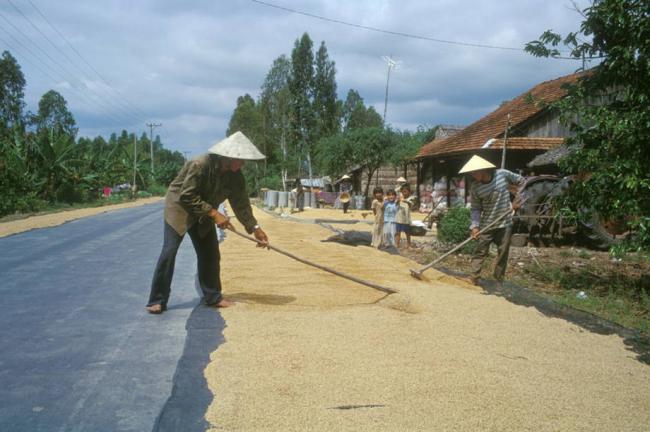
Boosting productivity key to economic growth in Asia-Pacific – UN
The flagship publication, Economic and Social Survey of Asia and the Pacific 2016, which is produced by the UN Economic and Social Commission for Asia and the Pacific (ESCAP), emphasizes that economic growth in the region will require higher, targeted fiscal spending, enhanced skills, better infrastructure, and improved agricultural productivity.
“Concerted efforts are needed to revive the region's economic dynamism and more effectively pursue the 2030 Agenda,” said Shamshad Akhtar, UN Under-Secretary-General and ESCAP Executive Secretary, as she launched the survey in Bangkok.
“Such interventions, particularly through fiscal measures, could support not only domestic demand but also strengthen the foundations for productivity-led growth, while fostering real demand through social safety nets and wage increases,” she added.
In the developing countries of Asia and the Pacific, annual average growth of total factor productivity declined from 2.8 per cent from 2000 to 2007 to just below 1 per cent from 2008 to 2014, according to the survey.
The productivity slowdown accounts for almost a fifth of the recent economic slowdown, from an average of 9.4 per cent during 2005 to 2007 to an estimated 4.6 per cent growth in 2015.
ESCAP underscores that this is a concern because sustained and resilient economic and productivity growth, backed by balanced economic, social and environmental development, is a prerequisite for successful implementation of the 2030 Agenda.
Akhtar emphasized that steady growth in real wages, which is critical for tackling poverty and inequality, as well as supporting domestic demand, also ultimately depends on productivity growth.
Noting that the Asia-Pacific region has the means and dynamism to revive economic growth, she acknowledged that “improving the quality of this growth, by making it more inclusive and sustainable, will be especially demanding.”
The survey calls for continued rebalancing towards domestic and regional demand, as prospects for export-led growth remain subdued. A confluence of macroeconomic risks including shifts in global financial and commodities cycles has also increased uncertainty.
The survey highlights that despite emerging challenges, the region's economic outlook is broadly stable and forecasts a moderate pickup in economic growth in developing Asia and the Pacific to 4.8 per cent in 2016 and 5 per cent in 2017.
The survey also notes that progress in reducing poverty is slowing and inequalities are rising in much of the region. At the same time, an expanding middle class and rapid urbanization are posing complex economic, social, environmental and governance challenges.
The region also faces increased financial volatility and capital outflows, which have limited the space for monetary policy manoeuvring, despite low overall inflation. Several countries are also experiencing a private debt overhang after rapid increases in household and corporate leverage in recent years.
ESCAP recommends that if the region is to shift to a more sustainable development strategy driven by domestic demand, greater focus must be placed on productivity along with commensurate increases in real wages. According to the agency, a productivity-driven, wage-led approach would enable countries to increase their aggregate supply and demand, thereby enhancing well-being.
Identifying the important role of fiscal policy in reviving economic growth and supporting the 2030 Agenda, Akhtar emphasized that fiscal initiatives “should be underpinned by sustained reforms towards an efficient and fair tax system that delivers the necessary revenues and promotes equity.”
The survey also highlights specific policy issues, such as improving female labour participation in South and South-West Asia; enhancing resilience to natural disasters in the Pacific; dealing with population ageing challenges in East and North-East Asia; economic diversification and services sector development in North and Central Asia; as well as tax policy and administration reforms in South-East Asia.
The year-end update of the survey will be released in November.
Photo: FAO/J. M. Micaud
Support Our Journalism
We cannot do without you.. your contribution supports unbiased journalism
IBNS is not driven by any ism- not wokeism, not racism, not skewed secularism, not hyper right-wing or left liberal ideals, nor by any hardline religious beliefs or hyper nationalism. We want to serve you good old objective news, as they are. We do not judge or preach. We let people decide for themselves. We only try to present factual and well-sourced news.







